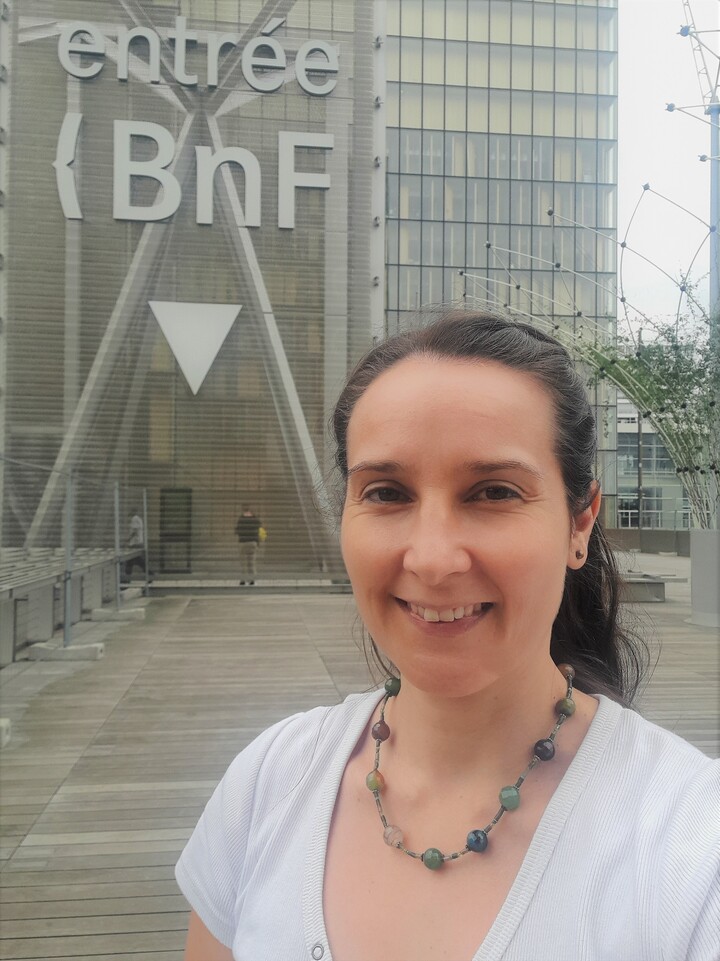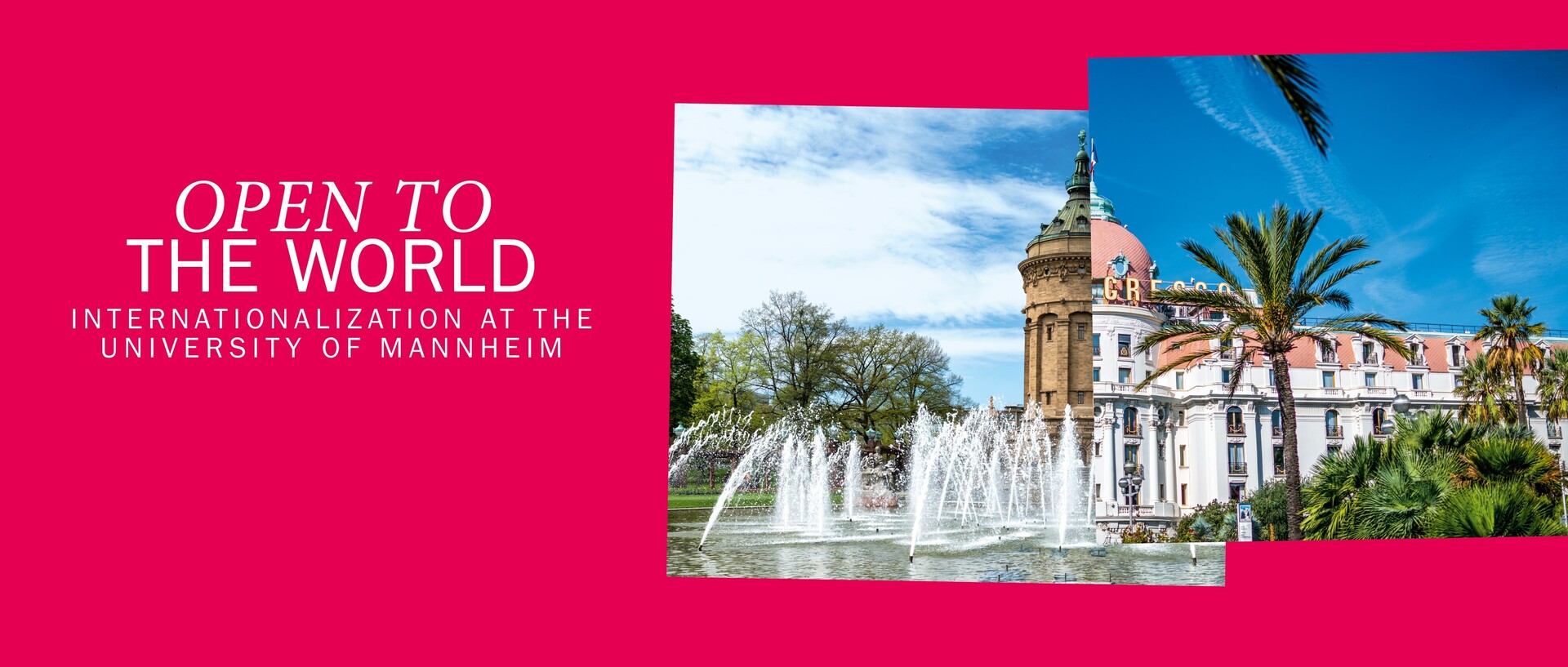The World of Research: a Global Network
From large EU projects to individual postdocs going abroad to conduct research, the internationalization of any university ties in closely to existing research partnerships. Thanks to these partnerships, research at the University of Mannheim remains state-of-the-art and includes insights and perspectives from all over the world. This is because the researchers always bring one thing with them from their projects and stays abroad: a large, international network.

Dr. Daniela Kuschel greets us on the screen with packed boxes behind her on this summer morning. Since 2014, she has been an academic staff member in the Romance Literatures and Media Studies area at the University of Mannheim. This is where she completed her B.A. and M.A. in Romance Studies and Business Administration, most recently earning her doctorate on the portrayal of the Spanish Civil War in popular culture media. But now, the postdoc is to spend a year in Paris starting in September. Of course it is exciting, assures Kuschel – the apartment hunt alone was a real adventure -, but it will not be her first international experience. “I've thought so many times about what internationalization actually means to me, and I always reach the same conclusion: When it comes down to it, internationalization is my daily bread! And that's by nature,” she states lightly and explains: “At its core, Romance Studies is a comparative science: Our research means we’re always immersing ourselves into foreign literatures and cultures, for example those of France or Spain. On the one hand, we have projects that are strongly interdisciplinary and international, and on the other hand, the research interests themselves are simply intercultural and international.” Kuschel then describes a typical day in her life as a researcher during her last project: “It sometimes happened that I had a phone call with a researcher from Chile in the morning, a Zoom call at noon with colleagues from Romania, Poland, and Spain, and in the evening I dedicated myself to lecture notes that had to be written in English so that everyone could understand them equally well.”
She therefore perfectly embodies the kind of international everyday life for researchers that the EU also strives for with its major funding projects. Twelve such collaborative projects with illustrious names such as “PAsCAL,” “HEAL,” or “RENergetic” are currently underway at the University of Mannheim. The EU specifies the topics, and researchers from various European countries then apply for the projects together. Researchers can also submit their own project ideas to the EU and then hope to receive one of the prestigious ERC grants. Since the founding of the European Research Council (ERC) in 2007, nine scientists at the University of Mannheim have been awarded an ERC grant, generating millions in funding for their own research. As a research officer, Dr. Isabell Ludewig is in charge of international research cooperation. She and her colleagues in the Research Support team are familiar with all the large and small grants, the DAAD visiting professorships, the fellowship program of the Alexander von Humboldt Foundation, and know about the many possibilities for internationalizing research. “In addition to the major projects and awards that bring our university a lot of money and an excellent reputation, there are the many examples of internationalization at the individual level, such as that of Dr. Kuschel. A postdoc raises funds for herself and goes abroad on her own, so to speak. That clearly contributes to internationalization, because people like Dr. Kuschel come back and have formed a network, which in turn benefits the University of Mannheim,” says Ludewig.
The Walter Benjamin program is designed to do just that: After their stay abroad, the researchers can evaluate what they have worked on and then feed this back into the German science system, not only at their own university, but also at another university in Germany. Daniela Kuschel successfully applied for this program funded by the German Research Foundation (DFG). And so Kuschel will first spend a year in Paris at the Sorbonne at the “Centre de Recherche en Littérature Comparée” with Professor Véronique Gély and then work at the University of Passau at the Chair of Romance Literatures and Cultures with Professor Susanne Hartwig. Both destinations were carefully selected—at these locations, Kuschel will find the ideal infrastructure for her research, which focuses entirely on “disability studies” (studies on or about disability) and thus serves to prepare her habilitation thesis.
Full of anticipation, Daniela Kuschel begins to speak enthusiastically about Paris – the cultural center of France! – with its countless libraries and archives and about being allowed to bury herself completely in them for a year. “It's a great privilege to be able to focus entirely on my research there. But it is also definitely a requirement: Internationalization has become a very important factor in academic careers,” Kuschel states. And even though she is already doing international research and work on a daily basis, the upcoming stay in Paris is also giving her a greater awareness of how important it is to get involved in the processes of internationalization at the University of Mannheim after her return. “I think that once again I’m becoming more aware of the competencies that I have and that our department has as well as the entire School of Humanities. Once I have also had this internationalization experience physically, I would definitely like to share my experience and competencies and thus contribute to the internationalization of the University of Mannheim,” says Kuschel.
For now, however, it is all about practical everyday exercises and lots of new experiences: How do I get my metro ticket? Do I always have to order a first course in France – will people look at me funny if I just have a main course? “Even though I'm used to working internationally, I'm not immune to everyday challenges like this either!” Kuschel admits with a smile, adding, “But I'm sure I'll meet a lot of nice people who will help me out.” And that is really what the experience is all about: meeting people, building networks, gaining experience, and returning home with a suitcase full of good memories and contacts that will accompany and inspire you throughout the rest of your research life.
Text: Jule Leger / October 2022
